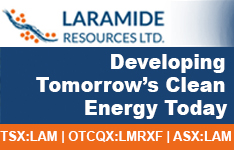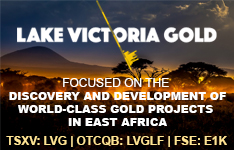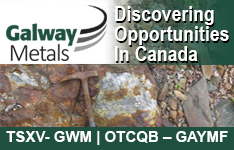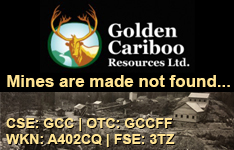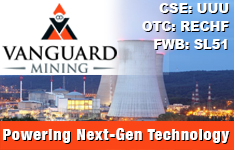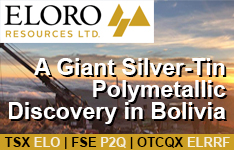The Life Sciences Report: You last spoke to us before the 2014 American Society of Clinical Oncology (ASCO) meeting, where you predicted that immuno-oncology would be the biggest hit for investors. You certainly got that right. What does the investment landscape look like going into 2015?
Stephen Dunn: At ASCO, the buzz surrounded the anti-PD-1 (programmed cell death protein-1) immune checkpoint inhibitor drug space, where Merck & Co. Inc.'s (MRK:NYSE) Keytruda (pembrolizumab) looked like it would be the first anti-PD-1 to get U.S. Food and Drug Administration (FDA) approval. In September, the company received accelerated approval in second-line melanoma patients. Shortly after that, in December, Bristol-Myers Squibb Co.'s (BMY:NYSE) (NYSE: BMY) Opdivo (nivolumab) received accelerated approval, also for melanoma. With Bristol-Myers Squibb's anti-CTLA-4 Yervoy (ipilimumab) approved in 2011, we now have three approved checkpoint inhibitors, and they are all approved for melanoma. In 2015, the focus of the checkpoint inhibitor space will be on additional cancer types, beyond melanoma, as well as on collaborations and combinations.
TLSR: What should investors expect to see after these melanoma successes?
"Investors should keep a close eye on Cellular Biomedicine Group Inc. during 2015."
SD: After melanoma, the next battleground will be in non-small cell lung cancer (NSCLC). Bristol-Myers Squibb already scored a victory a few weeks ago with Opdivo versus docetaxel in second-line squamous cell NSCLC. The survival results were so strong the company's CheckMate-017 trial was stopped early. While not entirely unexpected, the trial did show, for the first time, a survival benefit, and we expect FDA approval by late summer. Merck is expecting to file Keytruda in NSCLC during the summer, with FDA approval expected in Q4/15. The dark horse in 2015 would be Roche Holding AG's (RHHBY:OTCQX) anti-PD-L1 (the ligand side of the PD-1 pathway) drug MPDL3280A in NSCLC.
I believe the ultimate market winner here will be determined by the final labels each receives. Finally, look for Bristol's CheckMate-057 data for Opdivo in non-squamous NSCLC, possibly by late 2015.
TLSR: With all the investor enthusiasm in this space, are there any hidden hurdles?
SD: Clinically, I believe focus on the anti-PD-1/PD-L1 pathway will continue to prove a significant benefit to cancer patients. However, there is an undercurrent of concern for the future economics in this drug class. With both Opdivo and Keytruda costing up to $150,000 ($150K) for 12 months of treatment, and Yervoy $120K for four cycles, payers are already signaling some pushback. For example, it makes sense for Bristol-Myers to combine Yervoy with Opdivo. But does it make sense to believe payers will accept a price tag of $270K? Even as a monotherapy there has been some saber-rattling, as the CEO of Express Scripts Inc. (ESRX:NASDAQ) indicated he may use formulary exclusions to force companies to lower their prices—done recently with the new hepatitis C drugs—even though the new drugs are effectively a cure for those patients.
TLSR: With all the PD-1/PD-L1 advances lately, is it getting too crowded for small-cap biotechs?
SD: In my opinion, PD-1/PD-L1 is now mostly the domain for larger companies. One sign of a crowded drug development pathway is when large pharma starts to codevelop with large pharma. For example, in November, Pfizer Inc. (PFE:NYSE) paid $850 million ($850M) upfront to license Merck KGaA's (MKGAY:OTCPK) anti-PD-L1 candidate MSB0010718C for joint development in up to 20 targets as monotherapy and combination therapy, including up to six potential pivotal clinical trials. The financial resources needed to develop an advantage in this space are now beyond the reach of most smaller biotechs.
TLSR: What about small-cap biotechs doing combination therapies with their own drugs?
SD: This is one place were smaller companies can potentially benefit. Since Keytruda and Opdivo are now approved drugs, it seems every small biotech company is talking about combining their drug candidate with a PD-1 drug. While this provides a potential opportunity for small-cap biotechs, the high cost for Keytruda or Opdivo, plus the competition to enroll patients, are significant hurdles. For the most part, all eyes remain on the large pharma players such as MedImmune/ AstraZeneca Plc (AZN:NYSE) combination of tremelimumab (anti-CTLA-4) and MEDI4736 (anti-PD-L1), and the Bristol-Myers combination of Yervoy (anti-CTLA-4) and Opdivo (anti-PD-1). I expect to see the combination therapies to begin generating news flow in 2016.
TLSR: What is your takeaway message for investors here?
SD: The PD-1/PD-L1 space is now dominated by large-cap pharma companies held in global portfolios and managed by larger, institutional investors. With an estimated $40 billion ($40B) in annual revenues by 2025 just for the PD-1/PD-L1 drugs and all their on-label and off-label indications, the potential financial rewards are large enough to move the needle on large pharma stock prices, and can offset their patent expirations.
"In 2015, the focus of the checkpoint inhibitor space will be on additional cancer types, beyond melanoma, as well as on collaborations and combinations."
Unfortunately, this also generates conflict, such as Bristol-Myers now suing Merck for PD-1 patent infringement, as Ono Pharmaceutical Co. Ltd. (OPHLF:OTC; 4528:Tokyo) in Japan claims the patent and licensed it to Medarex, which was acquired by Bristol-Myers. The entire patent landscape in immuno-oncology is a bit murky at the present time, and developments on the legal front have the possibility of impacting stocks in the future. However, Wall Street is not overly concerned right now, as patent cases take years to get resolved, if ever.
TLSR: Are there any plays for small-cap biotech investors in immuno-oncology?
SD: The CAR (chimeric antigen receptor) T-cell space has been very attractive to small-cap investors, to the point where it now feels like the Wild West for investors. It began heating up last year with successful initial public offerings (IPOs) for Kite Pharma (KITE:NASDAQ), Bellicum Pharmaceuticals Inc. (BLCM:NASDAQ) and Juno Therapeutics (JUNO:NASDAQ). This enthusiasm had its roots in the 2012 deal between Novartis AG (NVS:NYSE) and the University of Pennsylvania for CART-19 (targets CD19) in B-cell malignancies.
CAR T cells use a patient's own T cells, which are genetically engineered to produce specific chimeric antigen receptor proteins on their surfaces, enabling the T cells to recognize and kill cancer cells. Initial results in patients with hematological (blood) cancers have been very promising. However, T cells release cytokines that can trigger a cytokine storm in the sickest patients, which have sometimes resulted in death. Fortunately, patients are now given anti-inflammatory drugs to successfully control cytokine storms, and CAR T-cell trials are progressing.
"The financial resources needed to develop an advantage in the anti-PD-1/PD-L1 space are now beyond the reach of most smaller biotechs."
It was a bit counterintuitive for investors, as Dendreon Corp.'s (DNDN:NASDAQ) commercial difficulties with Provenge (sipuleucel-T) had put a cloud over autologous therapies for cancer. However, in 2014 we saw Pfizer license from Cellectis (ALCLS:Paris) 19 CAR-T targets for $80M upfront, plus a $30M stock purchase, with the potential of $2.9B total, or $185M per target. And Johnson & Johnson (JNJ:NYSE) licensed from Transposagen Biopharmaceuticals Inc. (private) for up to $292M per CAR-T indication. Last month we saw Amgen Inc. (AMGN:NASDAQ) license from Kite Pharma for $60M upfront, with a potential $525M per target. We are also seeing significant moves into the allogeneic (donor) or off-the-shelf CAR T-cell space, with Intrexon Corp. (XON:NYSE) and Ziopharm Oncology Inc. (ZIOP:NASDAQ) paying $100M to MD Anderson Cancer Center for the "Sleeping Beauty" technology, which doesn't require a virus. In light of these deals, it's clear to see why CAR T-cells are an area of excitement for investors.
TLSR: What do you see coming, and how should investors play the immuno-oncology space?
SD: So far, we have seen excellent results with PD-1/PD-L1 checkpoint inhibitors in solid tumors such as melanoma and lung cancer. We also have seen very promising results using CAR T-cells in hematological cancers. Going forward, I expect to see some crossover between these technologies and cancer types. We may even see a checkpoint inhibitor combined with a CAR T-cell therapy. In my opinion, these possibilities will begin to emerge in 2016 and are not yet reflected in stock prices, so investors would do well to watch for news in this area.
Overall, I want to stress to investors that it is still early days for next-generation immuno-oncology drugs. Every researcher I've spoken with, at both large pharmaceutical and small biotech companies, truly believes these immune strategies are going to result in a quantum leap for cancer patient survival, and some envision them as eventual first-line treatments, replacing chemotherapy entirely.
"The patent landscape in immuno-oncology is a bit murky at present, and developments on the legal front may impact stocks in the future."
Specifically, it is difficult to pick the winners at this early stage of development in these emerging drug classes. My recommendation is for investors to focus on a basket of stocks, starting with the large pharma players, anchored with Novartis for CAR T cells and Bristol-Myers Squibb, which is currently the frontrunner with the two FDA-approved checkpoint inhibitors (Yervoy and Opdivo). For the small-cap companies, a broader basket of stocks would be required, where I believe Kite Pharma, Juno Therapeutics and Bellicum Pharmaceuticals should be included, along with Ziopharm for allogeneic CAR T-cell therapy.
TLSR: Any other stocks under the radar that investors should know?
SD: Cellular Biomedicine Group Inc. (CBMG:OTCMKTS), a relatively unknown company that I cover, is building up both a CAR T-cell and PD-1 program for the domestic Chinese medical market. While drug pricing is lower in China, lower costs combined with the high-density urban populations make it an ideal market for commercializing autologous therapies such as CAR T-cells.
The company has acquired CAR T-cell data, patents and manufacturing rights to target CD19+, CD20+, CD30+ and EGFR+/HER1+ receptor status. We expect all four CAR T-cell drug candidates to advance into Phase 2b/3 clinical trials in leukemia and lymphoma, as well as in lung cancer, later this year. In addition, Cellular Biomedicine is conducting human clinical trials for ReJoin, an autologous adipose stem cell therapy for knee osteoarthritis and cartilage defects, and is expected to begin clinical trials for allogeneic adipose stem cell therapies in asthma and chronic obstructive pulmonary disease.
We believe China will approve proposed regulations for cell therapy development in 2015, providing a pathway to approval for therapies like those being developed by Cellular Biomedicine. Investors should keep a close eye on this company during 2015.
TLSR: Thanks so much for your insights.
 LifeTech Capital President and Senior Managing Director Stephen Dunn was previously the managing director of Life Sciences Research at Jesup & Lamont, as well as director of research for Dawson James Securities and director of Life Sciences at Cabot Adams venture capital group. He has held management positions in business development, finance and operations, having worked in more than 25 countries in North America, Europe and the Far East with biomedical companies including Beckman Coulter, Coulter, Cordis (Johnson & Johnson) and Telectronics (St. Jude Medical), as well as several smaller companies. With more than 25 years in the global biomedical industry, Dunn has negotiated numerous intellectual property licenses, product development agreements, venture funding, mergers and acquisitions and joint ventures. Dunn is a five-star biotechnology analyst on StarMine and has appeared in both the financial and scientific media, including The Wall Street Journal, CNN, Newsweek, Forbes, Nightly Business Report, Nature Biotechnology, The Scientist, BioWorld and many other media outlets. He is a frequent speaker and panel member for many financial, medical and venture capital events.
LifeTech Capital President and Senior Managing Director Stephen Dunn was previously the managing director of Life Sciences Research at Jesup & Lamont, as well as director of research for Dawson James Securities and director of Life Sciences at Cabot Adams venture capital group. He has held management positions in business development, finance and operations, having worked in more than 25 countries in North America, Europe and the Far East with biomedical companies including Beckman Coulter, Coulter, Cordis (Johnson & Johnson) and Telectronics (St. Jude Medical), as well as several smaller companies. With more than 25 years in the global biomedical industry, Dunn has negotiated numerous intellectual property licenses, product development agreements, venture funding, mergers and acquisitions and joint ventures. Dunn is a five-star biotechnology analyst on StarMine and has appeared in both the financial and scientific media, including The Wall Street Journal, CNN, Newsweek, Forbes, Nightly Business Report, Nature Biotechnology, The Scientist, BioWorld and many other media outlets. He is a frequent speaker and panel member for many financial, medical and venture capital events.
Want to read more Life Sciences Report interviews like this? Sign up for our free e-newsletter, and you'll learn when new articles have been published. To see recent interviews with industry analysts and commentators, visit our Streetwise Interviews page.
Disclosure:
1) Staff conducted this interview for Streetwise Reports LLC, publisher of The Gold Report, The Energy Report, The Life Sciences Report and The Mining Report, and provides services to Streetwise Reports as employees. They own, or their families own, shares of the following companies mentioned in this interview: None.
2) The following companies mentioned in the interview are sponsors of Streetwise Reports: Cellular Biomedicine Group Inc. The companies mentioned in this interview were not involved in any aspect of the interview preparation or post-interview editing so the expert could speak independently about the sector. Streetwise Reports does not accept stock in exchange for its services.
3) Stephen Dunn: I or my family own shares of the following companies mentioned in this interview: None. I personally am or my family is paid by the following companies mentioned in this interview: None. My company has a financial relationship with the following companies mentioned in this interview: Cellular Biomedicine Group. I was not paid by Streetwise Reports for participating in this interview. Comments and opinions expressed are my own comments and opinions. I determined and had final say over which companies would be included in the interview based on my research, understanding of the sector and interview theme. I had the opportunity to review the interview for accuracy as of the date of the interview and am responsible for the content of the interview.
4) Interviews are edited for clarity. Streetwise Reports does not make editorial comments or change experts' statements without their consent.
5) The interview does not constitute investment advice. Each reader is encouraged to consult with his or her individual financial professional and any action a reader takes as a result of information presented here is his or her own responsibility. By opening this page, each reader accepts and agrees to Streetwise Reports' terms of use and full legal disclaimer.
6) From time to time, Streetwise Reports LLC and its directors, officers, employees or members of their families, as well as persons interviewed for articles and interviews on the site, may have a long or short position in securities mentioned. Directors, officers, employees or members of their families are prohibited from making purchases and/or sales of those securities in the open market or otherwise during the up-to-four-week interval from the time of the interview until after it publishes.







